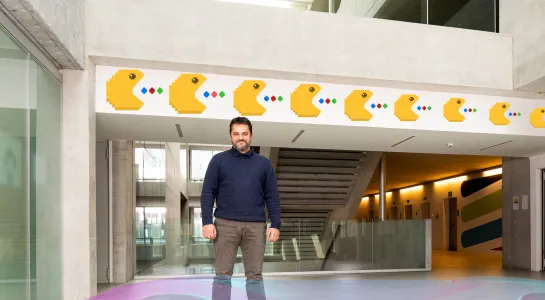
“My Tips to Get into the Industry”
“The video game industry is a growing industry, full of creativity, passion and innovation that you feel in your daily work. But predictability is a challenge." These are the words of Julien Pierrot, current Group Strategic Planning Director at Ubisoft, a French multinational listed on the stock exchange that develops and markets video games.
“I was looking for my next career challenge in finance and a company I fit in with in terms of company culture and purpose. Ubisoft was the perfect match. I applied for a job offer at the end of 2018. I was offered two different jobs in financial planning and started in 2019 as a senior analyst,” says the manager.
His work today involves forecasting financial data and supporting the leadership in decision making. “For me there is an added factor of passion for the intricacies of this creative industry, the end products and the positive impact on the players,” says the manager.
To reach his role, however, technical skills are not enough. “Anyone aiming to achieve a managerial role should be good at managing interpersonal relationships, problem solving and planning. For jobs in video game development, however, different skills are needed (programming, graphics, game design, production planning, etc.). In terms of mindset, being open to creativity and curiosity are great qualities,” explains Pierrot.
To those who want to approach the video game sector, he suggests to not hold back and to look for all the opportunities to come into contact with the sector, from internships to permanent positions. It is also important to learn about the industry through news and newsletters. “I recommend reading 'Blood, Sweat & Pixels' by Jason Schreier and subscribing to Stephen Totilo's Game File newsletter. For those interested in game development, I suggest participating in a game jam to experience what it means to develop a game as a team,” suggests Pierrot.
Again on the training front, his Master of Science degree in Economics of Art, Culture and Entertainment (ACME) was decisive for the manager. “It helped me a lot to grow and gave me exposure to in-depth topics in the creative industries. Several courses gave me models that I still use today, particularly those for managing media industry distribution systems and management of design.”
